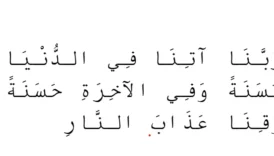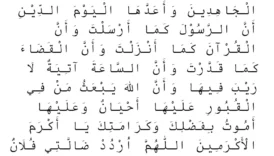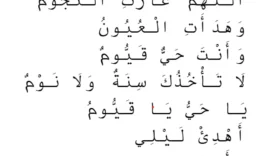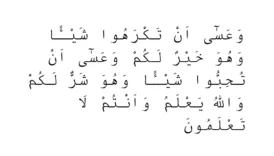Prayers And Spiritual Methods For Strengthening Memory And Enhancing Intelligence
Praying for memory and intelligence is important. Reciting the Quran, remembrance (dhikr), and blessings upon the Prophet (salawat) sharpen the mind. Through these spiritual ways, we seek Allah’s help to reduce forgetfulness and increase understanding. Let us ask our Lord for beneficial knowledge.
- Prayers And Spiritual Methods For Strengthening Memory And Enhancing Intelligence
- Turning To Allah: The First Step Towards Mental Clarity
- The Blessings Of The Holy Quran On Memory And Intellect
- Supplications Taught By The Prophet Muhammad (Peace Be Upon Him)
- The Mental Benefits Of Dhikr And Salawat
- What To Recite And Do Against Forgetfulness
- The Importance And Etiquette Of Seeking Knowledge
- The Impact Of Diet And Lifestyle On Memory: An Islamic Perspective
- Practices Narrated From The Companions And Scholars
- Final Word
- Bibliography
Turning To Allah: The First Step Towards Mental Clarity
My brothers and sisters, forgetfulness and mental distraction are human conditions we all experience from time to time. The hustle and bustle of modern life, stress, and preoccupations can tire our minds. However, as Muslims, we know that the cure for every ailment and the solution to every difficulty lies with our Lord Almighty. Therefore, the first step towards mental clarity and a strong memory should be turning to Him and asking Him. Just like any deed done with Ikhlas (sincerity), solely for the pleasure of Allah, our efforts in learning and memorizing are blessed by His help. We must keep our intentions pure and align every step we take on this path with His pleasure.
Tawakkul, meaning reliance upon Allah, is our greatest aid in this process. After exerting our best effort, entrusting the outcome to Allah brings peace and tranquility to our hearts. When the mind is free from worries, it becomes more receptive to learning and memorization. Let us not forget that, “And whoever relies upon Allah – then He is sufficient for him.” (Quran, 65:3). This noble verse applies not only to material difficulties but also to our spiritual and mental needs. When we turn to our Lord with complete submission, His mercy and help will be with us.
Taqwa, the consciousness of Allah and awareness of our accountability to Him, is a key that opens the doors of understanding and comprehension. Allah the Exalted says in the Holy Quran: “…And fear Allah. And Allah teaches you. And Allah is Knowing of all things.” (Quran, 2:282). Abstaining from sins and staying away from the forbidden purifies the heart. A pure heart is like a mirror reflecting divine light and wisdom. It is famously narrated that when Imam Shafi’i (may Allah have mercy on him) complained to his teacher, Waki’ bin Jarrah, about his weak memory, his teacher advised him to abandon sins. Because knowledge is a light, and the light of Allah does not enter the heart of a sinner (Diwan Imam Shafi’i). Therefore, choosing the path of spiritual purification and taqwa is essential for mental clarity and a strong memory.
The Blessings Of The Holy Quran On Memory And Intellect
The Word of Allah, the Holy Quran, is not only a healing for our souls but also a blessing for our minds. Reading it, striving to understand it, and memorizing it are among the most important spiritual exercises that strengthen memory. Our Almighty Lord states that the Quran is a healing and mercy: “And We send down of the Qur’an that which is healing and mercy for the believers…” (Quran, 17:82). This healing encompasses physical ailments as well as mental and spiritual difficulties like forgetfulness. Engaging with the Quran keeps the mind constantly active and, by Allah’s permission, enhances the ability to understand.
We observe that certain verses are particularly recommended concerning knowledge, understanding, and memory. For instance, the supplication of Prophet Musa (peace be upon him) for the untying of the knot in his tongue and the easing of his task is a beautiful example for every Muslim seeking knowledge:
قَالَ رَبِّ اشْرَحْ لِي صَدْرِي وَيَسِّرْ لِي أَمْرِي وَاحْلُلْ عُقْدَةً مِّن لِّسَانِي يَفْقَهُوا قَوْلِي
Transliteration: “Qala Rabbi-shrah lee sadree wa yassir lee amree wah-lul ‘uqdatan min lisaanee yafqahoo qawlee.”
Meaning: “He said, ‘My Lord, expand for me my breast [with assurance]. And ease for me my task. And untie the knot from my tongue. That they may understand my speech.'” (Quran, Taha, 20:25-28)
This supplication can be recited not only by those facing speech difficulties but also by anyone seeking Allah’s help in understanding, explaining, or learning a subject.
Also in Surah Taha, the following noble verse teaches us not to be hasty in seeking knowledge and to ask our Lord for an increase in knowledge:
…وَقُل رَّبِّ زِدْنِي عِلْمًا
Transliteration: “…wa qul Rabbi zidnee ‘ilmaa.”
Meaning: “…and say, ‘My Lord, increase me in knowledge.'” (Quran, Taha, 20:114)
This short yet profound supplication is a plea that should always be on the tongue of every Muslim on the path of knowledge. Constantly asking Allah to increase our knowledge demonstrates our humility and expresses our need for His help. We can recite these verses and supplications after prayers, before starting to study, or whenever we remember, seeking help from our Lord.
Supplications Taught By The Prophet Muhammad (Peace Be Upon Him)
Our beloved Prophet Muhammad Mustafa (peace and blessings be upon him), sent as a mercy to the worlds, guided us in all aspects of life, including matters of knowledge, memory, and understanding, teaching us valuable supplications. His prayers are the most precious treasures for our success in both this world and the Hereafter. The Prophet (PBUH) always asked Allah for beneficial knowledge.
It is narrated from Umm Salamah (may Allah be pleased with her) that after performing the Fajr prayer and saying the salam, the Messenger of Allah (PBUH) used to supplicate:
اللَّهُمَّ إِنِّي أَسْأَلُكَ عِلْمًا نَافِعًا، وَرِزْقًا طَيِّبًا، وَعَمَلاً مُتَقَبَّلاً
Transliteration: “Allahumma innee as’aluka ‘ilman naafi’an, wa rizqan tayyiban, wa ‘amalan mutaqabbalaa.”
Meaning: “O Allah, I ask You for beneficial knowledge, goodly provision, and acceptable deeds.” (Ibn Majah, Iqamatu’s-Salat, 32)
This supplication emphasizes the importance of knowledge being beneficial, not just abundant. We should seek refuge in Allah from useless knowledge and aim to benefit both ourselves and others with what we learn. Making it a habit to recite this supplication every morning can, Insha’Allah (God willing), fill our day with knowledge and blessings.
Furthermore, the Prophet (PBUH) had supplications in which he sought refuge in Allah from ignorance. Ignorance is harmful both for the individual and society. Knowledge, on the other hand, is light. It is narrated from Anas bin Malik (may Allah be pleased with him) that the Prophet (PBUH) used to supplicate:
اللَّهُمَّ انْفَعْنِي بِمَا عَلَّمْتَنِي، وَعَلِّمْنِي مَا يَنْفَعُنِي، وَزِدْنِي عِلْمًا
Transliteration: “Allahumma’nfa’nee bimaa ‘allamtanee wa ‘allimnee maa yanfa’unee wa zidnee ‘ilmaa.”
Meaning: “O Allah, benefit me with what You have taught me, teach me what will benefit me, and increase me in knowledge.” (Tirmidhi, Da’awat, 128; Ibn Majah, Dua, 2)
This supplication includes requests for the acquired knowledge to be beneficial and for the continuous learning of new and useful knowledge. It is a beautiful expression of seeking help from our Lord for the development of intelligence and the increase of understanding.
The Mental Benefits Of Dhikr And Salawat
Dhikr, the remembrance of Allah, is a unique act of worship through which hearts find peace. Our Almighty Lord says, “Unquestionably, by the remembrance of Allah hearts are assured.” (Quran, 13:28). A peaceful heart and a calm mind provide the most suitable environment for learning and memorization. Making it a habit to recite dhikr such as “SubhanAllah” (Glory be to Allah), “Alhamdulillah” (Praise be to Allah), “La ilaha illallah” (There is no god but Allah), “Allahu Akbar” (Allah is the Greatest), or seeking forgiveness by saying “Astaghfirullah” reduces mental clutter, increases focus, and attracts Allah’s help. Dhikr also serves as a shield against the whispers of Shaytan (Satan). One of Shaytan’s tactics is to make people forgetful. A heart and mind engaged in dhikr are better protected against such whispers.
Sending salat and salam upon the Prophet Muhammad (PBUH), known as Salawat, is also a highly virtuous act that enriches our spiritual lives, serves as a means for the acceptance of our supplications, and causes mercy to descend upon us. The Prophet (PBUH) said: “Whoever sends blessings upon me once, Allah sends blessings upon him ten times.” (Muslim, Salat, 70). Sending Salawat is an expression of our love and connection to the Prophet (PBUH). This love and connection increase our awareness and desire to follow his Sunnah (way). A life lived according to the Sunnah is the key to happiness in both this world and the Hereafter. Being spiritually peaceful and balanced positively affects our mental functions. Sending abundant Salawat during times of difficulty, while studying, or when trying to understand a topic can, by Allah’s permission, ease our affairs and grant clarity to our minds.
What To Recite And Do Against Forgetfulness
Forgetfulness is something that can happen to any of us. It can stem from fatigue, carelessness, or sometimes spiritual reasons. The Quran informs us that Shaytan strives to make people forget the remembrance of Allah (Quran, 58:19). Therefore, when experiencing forgetfulness or as a general measure against it, we should again seek refuge in our Lord and ask for His help.
When trying to recall something forgotten, reciting the following verse from Surah Al-Kahf is recommended:
…وَاذْكُر رَّبَّكَ إِذَا نَسِيتَ…
Transliteration: “…wadhkur Rabbaka idhaa naseeta…”
Meaning: “…And remember your Lord when you forget…” (Quran, Al-Kahf, 18:24)
This verse advises us to immediately remember our Lord, to engage in His dhikr, when we forget. Saying “Insha’Allah” or making dhikr when trying to recall something forgotten is both a supplication and a way of seeking Allah’s help. We can try to remember what we forgot by reciting this verse or simply a dhikr like “La ilaha illallah”.
Furthermore, there are narrations suggesting that using the Miswak (a natural toothbrush derived from the Arak tree), a practice from the Sunnah of the Prophet (PBUH), clears the mind and strengthens memory. Besides being an important Sunnah for oral hygiene, the Miswak may contribute to physical and mental alertness. (For the authenticity and interpretation of narrations on this topic, one can refer to commentaries on Hadith collections, e.g., Ibn Hajar, Fath al-Bari). Cleanliness is half of faith, and physical cleanliness is closely related to our spiritual and mental well-being.
The Importance And Etiquette Of Seeking Knowledge
Undoubtedly, one of the primary reasons we wish to improve our memory and intelligence is to acquire knowledge. Our religion, Islam, places immense value on knowledge and the learned. The fact that the first revealed verses began with the command “Read!” (Quran, 96:1) is the clearest evidence of this. The Prophet (PBUH) said, “Seeking knowledge is an obligation upon every Muslim (male and female).” (Ibn Majah, Muqaddimah, 17), indicating that the journey of seeking knowledge is a duty for every Muslim, regardless of gender or age. A strong memory and sharp intellect are important tools that help us fulfill this sacred duty.
However, seeking knowledge also has its etiquette (adab). Firstly, our intention (niyyah) must be sincere; we should seek knowledge for the sake of Allah, to eliminate ignorance, to learn the truth, and to act upon what we learn. Seeking knowledge for showing off, arguing to dominate others, or gaining worldly benefits is inappropriate. The seeker of knowledge should be humble, admit what they do not know, respect their teacher, and not become arrogant with the knowledge acquired. For knowledge finds its true value only when acted upon and when it refines one’s character. Let us remember that the “beneficial knowledge” we ask from our Lord is what truly matters. This benefit should help us find the right path in this world and attain salvation in the Hereafter.
The Impact Of Diet And Lifestyle On Memory: An Islamic Perspective
Alongside our spiritual efforts, taking care of our physical health also impacts memory and intelligence. Islam teaches us a balanced and healthy lifestyle. It is essential that what we eat and drink is Halal (lawful) and Tayyib (pure, good). The Quran states, “O you who have believed, eat from the good things which We have provided for you…” (Quran, 2:172). Avoiding Haram (unlawful) and doubtful foods is important not only for our physical health but also for our spiritual well-being and, consequently, our mental clarity.
The Prophet (PBUH) indicated that stomach ailments are the basis of many diseases and encouraged eating less. Overeating causes lethargy, clouds the mind, and can create reluctance towards acts of worship. Instead of filling the stomach to its maximum capacity, eating moderately (like allocating one-third of the stomach for food, one-third for water, and one-third for air – Tirmidhi, Zuhd, 47) facilitates digestion and helps mental functions operate better. Moderate consumption of foods recommended in the Sunnah, such as honey, dates, and olive oil, can also be beneficial for memory and general health.
Sufficient and quality sleep is also critically important for mental performance. Staying awake all night or having irregular sleep patterns disrupts concentration and leads to forgetfulness. The Prophet (PBUH) recommended sleeping early after the Isha prayer and waking up early for the Fajr prayer. This balance is ideal for both resting the body and refreshing the mind. Staying awake for a short period for night prayers like Tahajjud is a separate blessing that nourishes the soul and mind. A balanced diet, adequate sleep, and a regular lifestyle, combined with our prayers and spiritual efforts, will help us achieve better results regarding memory and intelligence, Insha’Allah.
Practices Narrated From The Companions And Scholars
Islamic history is rich with companions (Sahabah) and scholars known for their dedication to knowledge and strong memories. We can learn much from their lives and advice. For example, it is known that behind the extraordinary memories of great Hadith scholars like Imam Bukhari (may Allah have mercy on him) lay their piety (taqwa), sincerity (ikhlas), and constant engagement with knowledge. They did not view the hadiths they memorized merely as a collection of information but strived to implement them in their lives.
As mentioned earlier, the famous incident where Imam Shafi’i (may Allah have mercy on him) complained to his teacher Waki’ about weak memory, and his teacher advised him to abandon sins, is a prime example. This event indicates that just as sins darken the heart, they can also dull the mind, while piety leads to mental clarity (Diwan Imam Shafi’i). Therefore, avoiding major sins and not persisting in minor sins is one of the spiritual ways to protect and strengthen memory. Constantly seeking forgiveness from our Lord (istighfar) purifies the heart, and this purity reflects on the mind as well.
Final Word
My brothers and sisters, the most reliable door to knock on for strengthening our memory and enhancing our intelligence is undoubtedly the door of Almighty Allah’s mercy. Sincerely supplicating to Him, reading and striving to understand the Holy Quran, keeping the prayers taught by the Prophet (PBUH) on our tongues, and engaging our hearts and minds with dhikr and salawat are our fundamental spiritual remedies. Concurrently, resorting to material means such as consuming halal and pure food, practicing moderation, and getting enough rest is also important. Let us remember that we are responsible for exerting our best effort; success and blessings come only from Allah the Exalted. Let us always ask Him for beneficial knowledge, clarity of understanding, and a strong memory, and may He grant us the ability to act upon what we learn. May Allah be the Helper of us all. Ameen.
Bibliography
- The Holy Quran.
- Al-Bukhari, Muhammad ibn Ismail. Sahih al-Bukhari. Riyadh: Darussalam, 1997.
- Muslim, ibn al-Hajjaj. Sahih Muslim. Riyadh: Darussalam, 2000.
- Al-Tirmidhi, Muhammad ibn Isa. Sunan al-Tirmidhi. Riyadh: Maktabat al-Ma’arif, 1999.
- Ibn Majah, Muhammad ibn Yazid. Sunan Ibn Majah. Riyadh: Maktabat al-Ma’arif, 1999.
- Al-Nawawi, Yahya ibn Sharaf. Riyad al-Salihin (Gardens of the Righteous). (Various editions available).
- Imam Al-Shafi’i, Muhammad ibn Idris. Diwan al-Shafi’i (Collected Poems). (Various editions available).
- Ibn Hajar al-Asqalani, Ahmad ibn Ali. Fath al-Bari Sharh Sahih al-Bukhari (Victory of the Creator: Commentary on Sahih al-Bukhari). Beirut: Dar al-Ma’rifah. (Undated).





